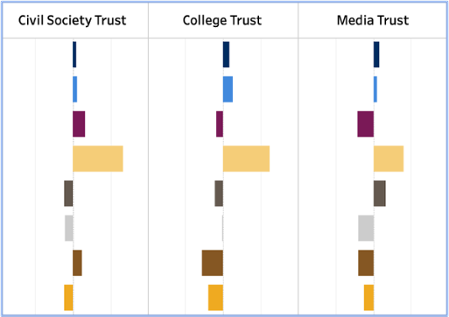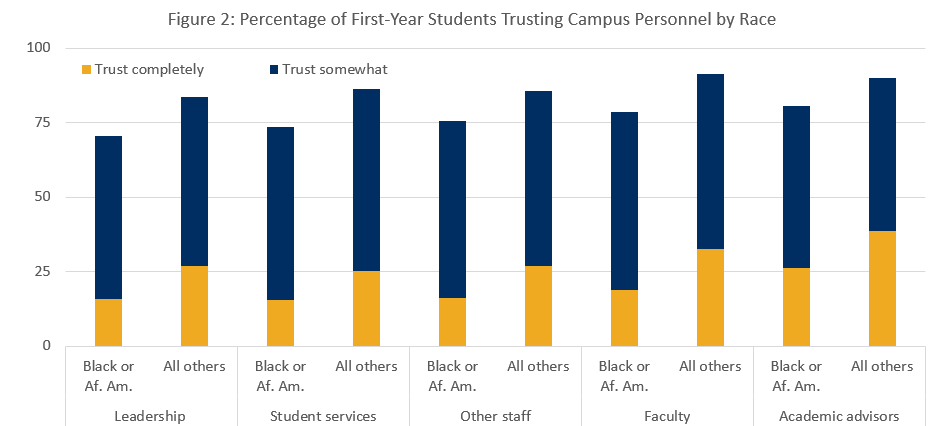Trust is a critical feature of everyday life. Whether our interactions are with individuals, groups, or institutions, we make instantaneous choices over whether to trust them based upon our assessment of the benefits and/or risks associated with the potential relationship. Consequently, trust underpins the nature of everyday life, from our assumed faith in others when deciding to cross a busy intersection to a deliberate decision to seek help from an instructor or peer in a classroom setting. Trust decisions are ubiquitous, as trust is a critical factor in admissions and matriculation decisions and persistence decisions, sense of belonging, advising-related outcomes, and even the quality of roommate relationships.
In the 2020 NSSE administration, students at 29 institutions received an additional item set focused on the issues of trust. Factor analyses revealed five categories of trust contained in the set: out-group trust, college trust, social institutional trust, media trust, and civil society trust (see sidebar below for example items). We used various demographic information to predict the five trust categories. Below, we summarize some of the noteworthy findings from our research. For the full version, see Fosnacht and Calderone (2020).





